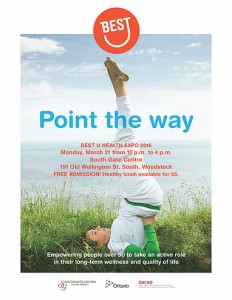 Walking has a vast array of health benefits that extend beyond the norm of exercise on its own. It can offer time for companionship if you are walking with someone, a time for distressing, or even time in nature. All of these on their own have their own merits and only increase the effectiveness of walking as a therapy. For this particular article, I am going to focus on three particular areas where walking has been shown time and time again to be quite beneficial: Mental Health, Heart Health, and Weight Management.
Walking has a vast array of health benefits that extend beyond the norm of exercise on its own. It can offer time for companionship if you are walking with someone, a time for distressing, or even time in nature. All of these on their own have their own merits and only increase the effectiveness of walking as a therapy. For this particular article, I am going to focus on three particular areas where walking has been shown time and time again to be quite beneficial: Mental Health, Heart Health, and Weight Management.
Mental Health
Walking can provide some relief for those experiencing various mental health concerns including anxiety, stress, and depression. Walking can provide an opportunity to get outside, to breathe in fresh air, and to debrief from the stress of the day. Specifically, in the area of depression, walking has been shown to improve self – esteem and depression overall; and those who do walk outside on a regular basis are less likely to report depression or symptoms of depression.
Heart Health
The heart is a vital organ that is impacted by so many different parameters including cholesterol, blood pressure, blood sugar, weight, etc. Each of these areas can be improved through walking and thus decrease the risk of heart disease. Studies on walking have suggested that it can increase HDL (good) cholesterol, decrease body weight, improve insulin sensitivity, decrease blood pressure, and decrease LDL (bad) cholesterol. Overall, as mentioned above, this translates into decreased risk of heart related disease and heart related death. The results were seen with walking more than 1 mile per day, walking more than 10,000 steps per day,
Overall Weight
Any discussion on walking is incomplete without discussion the health benefit of weight loss as a result of walking. Walking at least 30 minutes for 4-5 times per week can aid weight loss. In addition, research has shown that brisk walking is just as effective as high intensity jogging for weight loss. Walking may even be superior to jogging due to decreased potential injuries related to exercising.
Have you benefited from reading this blog? Know someone that would benefit as well? Share, Like, Comment, or Tweet this article, and let me know what you think.
Some of the information provided above may not be appropriate for everyone, please consult with your doctor before trying any of the above. If you are interested in Naturopathic Medicine and wanting a different approach to your health care needs, contact Dr. Elisha Cook ND by calling 519-537-7058 and book your appointment today!
References:
http://jama.jamanetwork.com/article.aspx?articleid=393937
http://www.annalsofepidemiology.org/article/1047-2797(94)90072-8/abstract
http://storre.stir.ac.uk/bitstream/1893/4767/1/sys_rev_depression_and_walking_for%20STORRE.pdf
http://www.jclinepi.com/article/S0895-4356(06)00256-3/abstract
http://care.diabetesjournals.org/content/18/6/775.short
http://atvb.ahajournals.org/content/33/5/1085.short
 If you or someone you know is interested in becoming pregnant in the future, is pregnant, or has recently become a parent, please consider coming to the Pharmasave Prenatal Health Fair. Myself, Dr. Donna Meyers DC, and Kaitlyn Rowland RMT will be there, along with other exhibitors to answer any questions you may have and provide you with more information on our services. Stop by our table for a free tea sample created by myself, enter a draw for either a free 45 minute massage with Kaitlyn Rowland RMT (valued at $60) or a free initial consult with myself (valued at $120)!
If you or someone you know is interested in becoming pregnant in the future, is pregnant, or has recently become a parent, please consider coming to the Pharmasave Prenatal Health Fair. Myself, Dr. Donna Meyers DC, and Kaitlyn Rowland RMT will be there, along with other exhibitors to answer any questions you may have and provide you with more information on our services. Stop by our table for a free tea sample created by myself, enter a draw for either a free 45 minute massage with Kaitlyn Rowland RMT (valued at $60) or a free initial consult with myself (valued at $120)!

